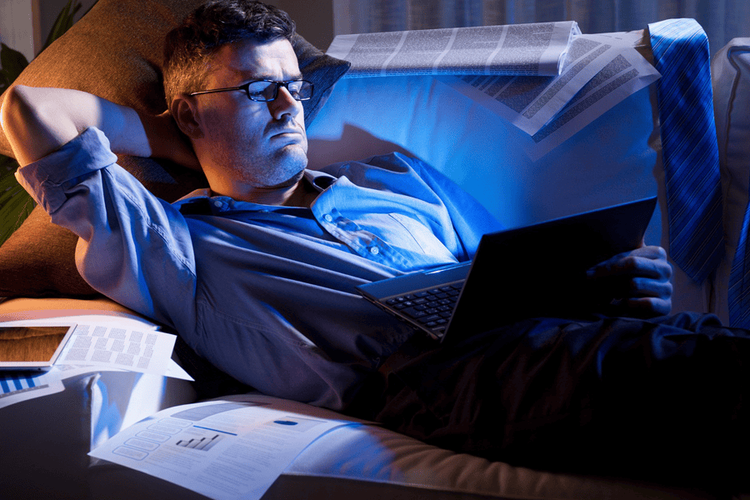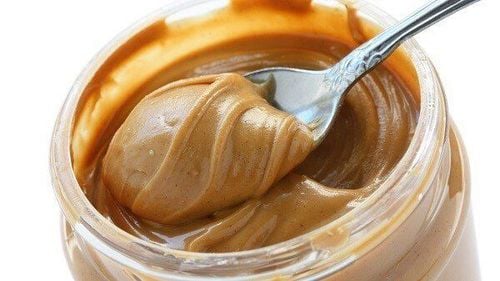This is an automatically translated article.
The article was professionally consulted with Senior Doctor, Specialist II Doan Du Dat - General Internal Medicine - Department of Medical Examination & Internal Medicine - Vinmec Ha Long International Hospital.Adequate sleep is essential for human mental and physical health. However, there are times when a person needs to eat late and stay up late to do homework, study or work. So, is staying up late a lot harmful and the risk of obesity when staying up late is true. In this article, we discuss the causes of late night obesity and some tips to avoid this harmful effect on health.
1. Benefits of Sleep
Getting enough sleep boosts immune system immunity:If you seem to have an ongoing cold and flu, your bedtime may be to blame. Prolonged lack of sleep can disrupt your immune system, so you're less able to fight off bugs.
Get enough sleep can help you slimmer:
Less sleep can mean you gain weight! Studies have shown that people who sleep less than 7 hours a day tend to gain more weight and have a higher risk of obesity than those who sleep 7 hours.
This is thought to be because people who are sleep deprived have reduced levels of leptin (the chemical that makes you feel full) and increased levels of ghrelin (the hormone that stimulates hunger).
Getting enough sleep boosts mental health:
Given that a single sleepless night can leave you irritable and moody the next day, it's no surprise that chronic sleep debt can lead to long-term mood disorders such as clinical depression and generalized anxiety disorder in adults.
When people with anxiety or depression were surveyed to calculate their sleep habits, it turned out that most of them slept less than 6 hours a night.
Get enough sleep prevents diabetes:
Studies have suggested that people who usually sleep less than 5 hours a night have a higher risk of diabetes.
It seems that missing out on deep sleep can lead to type 2 diabetes by changing the way the body processes glucose, which the body uses for energy.
Get enough sleep increases sex drive:
Research shows that men and women who don't get enough sleep experience a loss of libido (decreased sex drive) and less interest in sex.
Men with sleep apnea - a disorder in which difficulty breathing leads to disrupted sleep - also tend to have low testosterone levels, which can decrease sex drive.
Get enough sleep prevents heart disease:
Prolonged sleep deprivation seems to be linked to increased heart rate, increased blood pressure and higher levels of certain chemicals linked to inflammation, which can cause stress More straight for your heart.
Sufficient sleep boosts fertility:
Difficulty conceiving is thought to be one of the effects of sleep deprivation in both men and women. Clearly, frequent sleep disruptions can cause infertility by reducing the secretion of reproductive hormones.

Thức khuya gây béo phì là tình trạng thường gặp
2. Is it harmful to stay up late?
Staying up late disrupts the body's natural sleep-wake cycle, which can affect a person's mental performance and energy levels the next day. Constantly staying up at night can lead to sleep problems and long-term health effects. After a long day people experience fatigue, temper tantrums and lack of concentration often followed by poor sleep.Sometimes a sleepless night makes you feel tired and cranky the next day, but if it's just a few nights it won't harm your health.
After many sleepless nights, nervous tension will greatly affect the spirit, making it more and more serious. Your brain will be foggy, making it difficult for you to concentrate and make clear decisions. You will start to feel drowsy and may oversleep during the day. Your risk of being injured or having an accident at home, work or on the road also increases.
Plus, when you're too tired, your brain's reward centers kick back in, looking for something to feel good about. So, usually when you are fully rested, your appetite will not appear, but with your sleep-deprived brain, you will not be able to control it and will eat more.
A study in the American Journal of Clinical Nutrition found that when people are starved, the likelihood of late-night snacking increases and the likelihood of choosing high-carb snacks is high. . In a study conducted at the University of Chicago - USA, sleep-deprived participants chose twice as many high-fat snacks as those who got at least 8 hours of sleep. Every night.
A second study found that getting too little sleep causes people to eat more of all foods, leading to weight gain. And in a review of 18 studies, researchers found that sleep deprivation increases cravings for high-energy, high-carbohydrate foods.
Continued lack of sleep can affect your overall health and make you more susceptible to serious medical conditions, such as obesity, heart disease, high blood pressure (hypertension) and diabetes .
3. Causes of obesity when staying up late
Many reliable studies have shown that not getting 7 to 9 hours of sleep per night increases the risk of obesity in adults. Here are the reasons why staying up late causes obesity.3.1. Stress hormones cause obesity
The habit of getting enough 7-9 hours of sleep a night not only helps you prevent obesity and overweight, but also helps prevent heart disease, depression, stroke, and other chronic disorders. When you sleep, it is also the time when your body will be repaired and restored to health. If sleep deprivation is frequent, inflammatory factors and stress hormones are released in response to chronic stress.The hormone cortisol is one of several stress hormones released during this process. Glucose (sugar) is released into the bloodstream by cortisol to nourish the brain and support its better functioning. But it should be mentioned that the side effect of cortisol is that it can cause your weight to increase and in the long run will cause obesity.
Prolonged stress will cause your body to secrete more cortisol and stimulate appetite significantly. This is also the reason why many people choose to relieve stress by eating more than usual and easily causing weight gain.
3.2 Staying up late increases cravings
This has been proven by scientific studies. Especially for those who are intending or trying to lose weight, getting enough sleep every night will increase the chances of success much higher. As for children, depending on different ages, the need for sleep will fluctuate more than 10 hours or more than 10 hours per night.When you lack sleep, the body will generate cravings, and the choice at that time will usually be fast food, foods rich in fat and carbohydrates. These foods are high in unhealthy fats and added sugars that will make you crave and overeat, exceeding your daily calorie needs.
If you often stay up late and have a habit of eating before bed, you are more likely to stay up late and snack due to sleep habits. Some people also have the habit of staying up late to "plow" movies, even eating while watching movies until early morning, which increases the risk of obesity.

Thức khuya làm tăng cảm giác thèm ăn
4. Tips on how to sleep easier
If you're not getting enough sleep, the only way to make up for it is to sleep more.If you've had many sleep-restricted days, you've accumulated a significant sleep debt. So it will take a few weeks for the body to get used to the recovery.
Starting at the weekend, try to get 1 or 2 extra hours of sleep each night. The way to do this is to go to bed when you feel tired and let your body wake up on its own in the morning (no alarm clock allowed!).
Initially, you can sleep up to 10 hours a night. After a while, the amount of time you sleep will gradually decrease to a normal level.
Don't rely on caffeine (like strong coffee to stay up late) or energy drinks as a short-term option. They can boost your energy and focus in the short term, but can disrupt your sleep even more in the long run.
Please dial HOTLINE for more information or register for an appointment HERE. Download MyVinmec app to make appointments faster and to manage your bookings easily.













